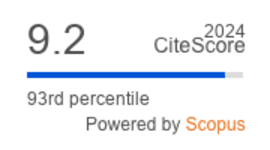Modulation of Wnt/β-Catenin Signaling Pathway by Bushenfang for Colorectal Tumor Inhibition in mice with Adenomatous Polyposis Coli Gene Mutation
DOI:
https://doi.org/10.36877/pmmb.a0000466Abstract
Colorectal cancer (CRC) remains a major health concern worldwide, with current treatments associated with significant side effects and resistance. Traditional Chinese medicine (TCM), particularly BuShenFang (BSF), has shown potential as an alternative therapeutic strategy. However, the exact mechanism of BSF's action in CRC treatment is not fully understood. Despite the promising anticancer properties of BSF, its mechanism in inhibiting colorectal tumor progression remains unclear, necessitating further investigation. This study aims to evaluate the inhibitory effects of BSF on intestinal adenoma development in APCmin/+ mice and elucidate its underlying mechanism, focusing on the Wnt/β-catenin signaling pathway. APCmin/+ mouse were randomly assigned into four groups: control, low-dose BSF (100 mg/kg), high-dose BSF (200 mg/kg), and xStAxVHLL (positive control). After 11 weeks of treatment, tumor burden, histopathological changes, cell proliferation, apoptosis, and key signaling proteins were assessed using HE staining, immunohistochemistry, TUNEL assay, and Western blot analysis. BSF treatment significantly reduced tumor count and size in a dose-dependent manner. High-dose BSF suppressed tumor cell proliferation, promoted apoptosis, and enhanced APC expression while inhibiting β-catenin accumulation and its downstream targets, including c-Myc, Cyclin D1, and COX-2. These findings suggest that BSF exerts its anti-tumor effects through modulation of the Wnt/β-catenin pathway. BSF demonstrates significant potential in inhibiting colorectal tumorigenesis via modulation of key oncogenic pathways. Further research is warranted to explore its clinical applications and optimize therapeutic dosing.
Downloads
Published
How to Cite
Issue
Section
License
Copyright (c) 2025 Khang Wen Goh, JIe Ji, Xian Gu, Rajesh Sreedharan Nair, Hemant Kumar Singh Yadav, Phei Er Kee, Siew-Keah Lee, Ashok Kumar Janakiraman, Long Chiau Ming, Kai Bin Liew

This work is licensed under a Creative Commons Attribution-NonCommercial 4.0 International License.
Author(s) shall retain the copyright of their work and grant the Journal/Publisher right for the first publication with the work simultaneously licensed under:
Creative Commons Attribution-NonCommercial 4.0 International (CC BY-NC 4.0). This license allows for the copying, distribution and transmission of the work, provided the correct attribution of the original creator is stated. Adaptation and remixing are also permitted.

This broad license intends to facilitate free access to, as well as the unrestricted reuse of, original works of all types for non-commercial purposes.
The author(s) permits HH Publisher to publish this article that has not been submitted elsewhere.



.png)

.jpg)
